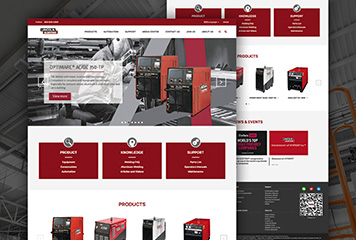An efficient Sitecore maintenance approach is essential for businesses using Sitecore as their content management system (CMS) to maximize performance, security, and return on investment. Sitecore needs constant maintenance to stay updated, optimized, and integrated with other crucial systems, just like any enterprise-level technology.
The best practices for Sitecore maintenance will be covered in this in-depth guide to assist businesses in maintaining optimal website performance. Establishing a governance model, scheduling normal maintenance tasks, automating maintenance with tools, important security procedures, methods for troubleshooting problems, supporting content authors, maintaining infrastructure, and creating a comprehensive Sitecore support plan will all be covered.

Establishing Sitecore Maintenance Governance
The first step in planning Sitecore maintenance is developing governance around roles, responsibilities, and workflows. This ensures accountability across the content, technical, and governance teams responsible for Sitecore. Governance should delineate:
- Team roles and owners
- Change approval processes
- Testing and quality assurance (QA) protocols
- Regular reporting and communications
- Issue escalation procedures
An oversight team may be appointed to set policies, monitor compliance, and manage maintenance budgets and timelines. All activities should be documented in a central knowledge base.
Scheduling Routine Maintenance Activities
Certain Sitecore maintenance tasks should be performed on a routine basis to maximize performance and minimize risk.
Daily tasks:
- Backups: Full backups of all Sitecore databases and file system
- Log monitoring: Review logs for errors or warning signs
- Security scans: Run AV software and vulnerability scanners
- Backup testing: Restore backups regularly to ensure recoverability
Weekly tasks:
- Content audit: Review content quality, SEO, accessibility
- Link validation: Check for broken internal/external links
- File system clean up: Remove unused media, scripts, etc.
- Database maintenance: Clearing logs, optimizing tables, etc.
- Web crawling: Crawl all pages to identify issues
Monthly tasks:
- Security patching: Install the latest security/DLL updates
- Infrastructure review: Evaluate capacity planning needs
- User access audit: Check roles and permissions
- Performance testing: Stress test and address bottlenecks
- SEO review: Check page titles, metadata, alt text, etc.

Leveraging Automation Tools
Automating repetitive Sitecore maintenance tasks is key for efficiency. Some useful automation tools include:
- Sitecore Installation Framework (SIF): Automates deployment of upgrades, configs, databases
- Server maintenance tools like SQL Server Agent: Scheduling for database tasks
- PowerShell: Scripting for backup, extracts, package installs, updates
- Sitecore CLI: Automates setup, deployment, and management
- Sitecore PaaS services: Azure automation and management tools
Critical Sitecore Security Maintenance
Security is a crucial element of maintenance. Key practices include:
- Apply all new security patches as soon as available
- Use only secure connections like HTTPS/TLS
- Encrypt passwords and sensitive data
- Use authentication options like biometrics or single sign-on
- Validate user input and sanitize output data
- Disable unused modules/components
- Restrict user permissions to the minimum required
- Perform penetration tests and address vulnerabilities
Maintenance for Debugging & Troubleshooting
A maintenance plan must support debugging tools and processes to resolve issues quickly when they arise.
- Enable diagnostic logging for in-depth troubleshooting
- Use Sitecore log viewers for log analysis
- Perform health checks on environments
- Set performance baseline benchmarks
- Implement real user monitoring (RUM) for frontend issues
- Create Issue/Bug tracking processes with lifecycle workflows
- Collect environment details like .NET version, drivers, etc. to assist with diagnosis
Supporting Content Authors
Authors creating and managing content often need specialized assistance. Common requests include:
- Guidance in creating content and metadata
- Workflows for content submission/approval
- User access and permission management
- Templates and component usage
- Linking content, media management
- Versioning, language, and translation
- Training for new features and enhancements
Infrastructure Maintenance
Sitecore depends on underlying infrastructure which also requires maintenance:
- Maintain operating systems, .NET framework, drivers, databases
- Monitor hosting environment capacity
- Apply security patches to the operating system and tools
- Backup IIS configuration and web server
- Tune SQL Server for optimal performance
- Load balance traffic across servers/data centers
- Proactively scale up infrastructure to meet demand
- Refresh lower environments with production data
Developing a Sitecore Support Plan
A Sitecore support plan provides resources to assist with maintenance and troubleshooting issues. Internal IT and development teams can handle maintenance but may partner with Sitecore specialists for enhanced support. Typical support tiers include:
Tier 1: Internal help desk for basic issues like password resets
Tier 2: Escalated to internal Sitecore resources for complex issues
Tier 3: Engage Sitecore architecture experts for advanced issues
Options like pay-per-incident plans or retainers for dedicated hours monthly/annually provide flexibility. Support contracts can offer:
- 24/7 or business hours phone/email assistance
- Priority response times based on issue severity
- Development resources for major enhancements
- Proactive advisory services to optimize Sitecore

Conclusion
Art and science are combined in Sitecore maintenance. Technical details add rationale, while governance and assistance add a sensible human component.
Partnering with Sitecore Experts
While Sitecore provides unmatched capabilities, realizing its full value requires proper strategy and implementation. Partnering with a Sitecore solutions provider is highly recommended to ensure success.
Here are key areas where their expertise delivers value:
- Planning – Roadmap creation, governance planning, business outcome alignment.
- Implementation – Architecture, integrations, content migration, customization, testing.
- Change Management – User training, new workflow adoption, optimized utilization.
- Enhancement – Adding capabilities like commerce over time, expanding to new markets.
- Optimization – Fine-tuning personalization, automating experiences, and proving ROI.
- Management – Hosting, monitoring, troubleshooting, upgrades, maintenance.
Certified Sitecore partners provide critical knowledge and experience that enables businesses to achieve goals faster. Their guidance ensures you leverage Sitecore's enterprise-class DXP to its full potential across your digital properties.
During the cooperation with our clients, QEdge, as a Sitecore implementation partner, has been pursuing the best performance as always.







